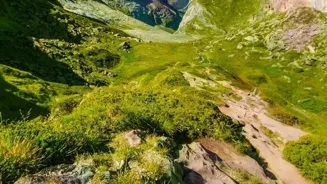Embark on a transformative solo travel journey in India. Discover tips on destinations, budgeting, safety, packing, connections, and self-discovery. Explore the unknown and embrace personal growth. Plan
your adventure wisely and create lasting memories
So, you're thinking of travelling alone? Wah, that's a brilliant decision! Solo travel is not just a holiday; it's a journey of self-discovery, a chance to break free from the routine and create memories that will last a lifetime. But before you pack your bags and head out, a little planning is key.
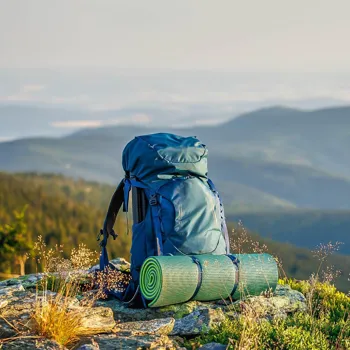
This guide will help you navigate the exciting, yet sometimes daunting, world of solo travel in India, ensuring a safe, enriching, and unforgettable experience.
Where to Go: Choosing Your Destination
India is a land of incredible diversity, offering something for every type of traveller. Thinking of mountains? Head to Himachal Pradesh or Uttarakhand for breathtaking views and serene trekking trails. More of a beach person?
Goa and Kerala offer stunning coastlines, delicious seafood (for those who enjoy it), and a relaxed vibe. For a taste of history and culture, Rajasthan is your go-to destination, with its magnificent forts, vibrant markets, and royal heritage.
And for a spiritual journey, Varanasi or Rishikesh could be just what you need.
Consider your interests and comfort level when choosing your first solo destination.
If you're a bit nervous, start with a well-trodden tourist route, like the Golden Triangle (Delhi, Agra, Jaipur), which offers good infrastructure and plenty of fellow travellers.
If you're feeling more adventurous, explore the less-visited corners of the Northeast, like Meghalaya or Arunachal Pradesh, known for their stunning natural beauty and unique cultures. Also, research the best time to visit each destination based on the weather.
Remember, a well-researched destination makes for a smoother and more enjoyable trip. Don't just see the famous spots; try to dig a little deeper. Chat with locals, visit local markets, and try some authentic local food (always be mindful of hygiene, of course!).
This will give you a more real and immersive travel experience.
Budgeting Like a Pro: Money Matters
Before anything else, figure out your budget. Solo travel often requires a bit more financial planning, as you're responsible for all the expenses. Start by estimating the cost of transportation, accommodation, food, activities, and any potential visa fees.
India is generally very traveller-friendly when it comes to budget, with options available for all price points.
For accommodation, consider hostels, guesthouses, or budget-friendly hotels. Apps like Booking.com, Agoda, and MakeMyTrip can help you find great deals.
For transportation, trains are an excellent option for long distances, offering comfortable and affordable travel. Local buses are even cheaper, but can be a bit more crowded and time-consuming. To save money on food, eat at local eateries instead of fancy restaurants.
This not only saves money but also gives you a taste of authentic Indian cuisine. Remember to factor in some buffer for unexpected expenses, like medical emergencies or changes in travel plans. It's always better to be prepared. Keep a track of your expenses daily to stay within budget.
Little expenses add up, so keep an eye on them. It helps in planning for future trips too.
Safety First: Staying Safe on Your Own
Safety is paramount, especially when travelling alone. Research the safety situation of your chosen destination before you go. Read reviews from other travellers and be aware of any potential risks. Always inform someone of your travel plans, including your itinerary and accommodation details.
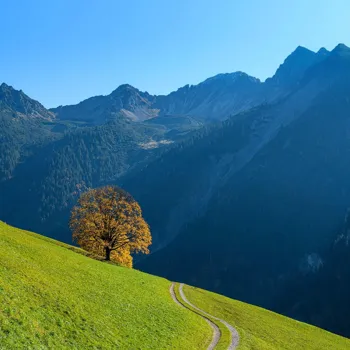
Share your location regularly with family or friends.
Carry a copy of your passport and other important documents, and keep the originals in a safe place. Avoid walking alone at night in poorly lit areas, and be cautious of strangers offering unsolicited help.
Learn a few basic phrases in the local language, which can be helpful in navigating situations and asking for assistance. Dress modestly to respect local customs and avoid unwanted attention. Remember and trust your gut feeling.
If a situation feels unsafe or uncomfortable, remove yourself from it immediately. Invest in a personal safety alarm, which can be useful in case of emergency. It's also worth having travel insurance that covers medical emergencies and theft.
Stay connected with local authorities and know emergency numbers.
Packing Smart: What to Take With You
Packing light is essential for solo travel. You don't want to be lugging around heavy bags everywhere. Focus on versatile clothing items that can be mixed and matched. Pack comfortable walking shoes, as you'll likely be doing a lot of exploring on foot.
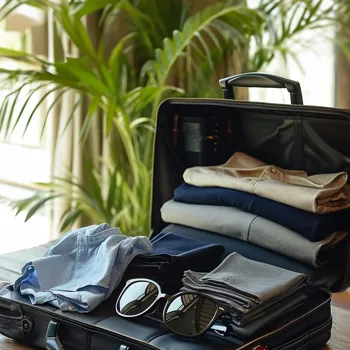
A first-aid kit is a must, including essentials like bandages, antiseptic wipes, pain relievers, and any personal medications.
Don't forget essential toiletries, sunscreen, insect repellent, and a water bottle.
A power bank is crucial for keeping your phone charged, especially when you're on the move. Download useful apps like Google Maps, offline translation apps, and ride-hailing apps. A universal adapter is essential for charging your devices in different parts of India.
A small backpack is useful for day trips, allowing you to carry essentials like water, snacks, and a camera. Most importantly, don't forget your phone and camera to capture all those amazing memories!
Having a portable charger can come in handy during long journeys or in areas with limited access to electricity.
Embrace the Unknown: Connecting with Others
One of the best things about solo travel is the opportunity to connect with new people. Don't be afraid to strike up conversations with fellow travellers or locals. Hostels are a great place to meet other backpackers who share your adventurous spirit.
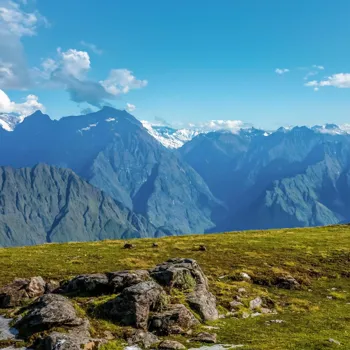
Join local tours or activities, which provide a chance to interact with others who have similar interests.
Use social media platforms and travel forums to connect with other travellers before your trip. Look for local events or meetups that you might be interested in attending.
Be open to trying new things and stepping outside your comfort zone. Sometimes the most rewarding travel experiences come from unexpected encounters. Remember to be respectful of local customs and traditions, and always be mindful of your surroundings.
While it's fun to connect with others, it's also important to maintain your personal space and boundaries. Enjoy the freedom of setting your own schedule and exploring at your own pace.
Make it Meaningful: Self-Discovery
Solo travel is more than just ticking off destinations on a map; it's a chance for self-discovery and personal growth. Take time to reflect on your experiences and learn from your travels. Keep a journal to document your thoughts, feelings, and observations.
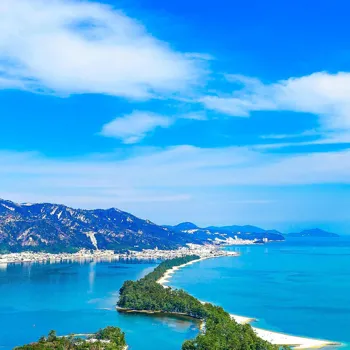
Be open to new perspectives and challenge your assumptions.
Use this time to connect with yourself on a deeper level. Engage in activities that bring you joy and fulfillment, whether it's hiking, yoga, meditation, or photography. Spend time in nature, soaking in the beauty of the surroundings.
Embrace the solitude and learn to appreciate your own company. Solo travel can be a transformative experience, helping you to become more confident, independent, and resilient. Remember to celebrate your achievements and acknowledge your personal growth.
Carry your experiences forward into your everyday life, and let them inspire you to live a more authentic and fulfilling life. Remember, every journey, big or small, changes you in some way. Be open to that change.
AI Generated Content. Glance/InMobi shall have no liability for the content